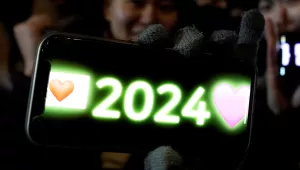By Matthew Bunn
At the 2010 Nuclear Security Summit in Washington, DC, the United States led the charge in urging states to ratify key nuclear security related treaties. Nearly four years later, we’re still waiting for the United States to take its own advice. This undermines US nuclear security leadership.
An important goal of the four-year effort to secure all vulnerable nuclear material was to strengthen the global nuclear security architecture—in part by getting as many countries as possible to sign and ratify the key relevant conventions, particularly the 2005 amendment to the Convention on Physical Protection of Nuclear Materials (CPPNM) and the International Convention on the Suppression of Acts of Nuclear Terrorism (ICSANT).
The United States first proposed amending the CPPNM in 1998. The amendment was not completed and opened for signature until 2005, it creates no specific standards for security for nuclear materials, enunciating only very broad principles. Nevertheless, the Bush administration signed the amendment and pushed for Senate approval, and the Senate gave its advice and consent to ratification in 2008. Similarly, ICSANT, first proposed by Russia, was also opened for signature in 2005 and approved by the Senate in 2008.
Both of these conventions require parties to criminalize acts related to nuclear terrorism, such as theft of nuclear material or sabotage of a nuclear reactor. Arguably, the relevant acts are already illegal under US laws, but some are not specified in US laws precisely as they appear in the conventions, and both the Bush administration and the Obama administration concluded that implementing legislation was needed to conform US laws to these treaties’ requirements. Both administrations decided that they would not deposit instruments of ratification for these conventions until that legislation had been passed into law.
While the Bush administration secured Senate advice and consent to ratification of these treaties, it fell to the Obama administration to propose implementing legislation. The Obama administration hoped to get the legislation approved before the first nuclear security summit in 2010—but Congress failed to act. With the 2010 summit work plan calling for participants to push for universal adherence to these conventions, the administration then tried to get the legislation approved in time for the second nuclear security summit in Seoul in 2012—and Congress once again took no action. The Seoul nuclear security summit called on states to accelerate their ratification efforts, with the goal of bringing the CPPNM amendment into force by 2014. But as of this writing, it appears the United States will again be unable to ratify before the 2014 nuclear security summit.
The problem appears to be a combination of lack of sustained high-level attention by both the administration and Congress and disputes over unrelated issues, including the death penalty. There has been sustained attention to this issue from officials on the National Security Council staff, but senior administration officials have made only intermittent efforts to weigh in on Capitol Hill, in contrast to the intense administration efforts on many other pieces of legislation.
The original legislation—which would also implement counter-terrorism provisions of recent maritime conventions—included provisions imposing the death penalty for some nuclear terrorism crimes and authorizing wiretapping in some circumstances to prevent them, which some Democrats (including Senate Judiciary Committee Chairman Sen. Patrick Leahy) opposed; some Republicans (particularly Judiciary Committee ranking minority member Sen. Charles Grassley) put a hold on a version that did not include these provisions; and while the House has twice approved a bipartisan compromise (most recently by a vote of 390-3), Leahy and Grassley have been unable to resolve their differences and the Senate has resolutely failed to act.
The US failure to ratify has made it far harder for the United States to pressure other states to ratify and to strengthen the global nuclear security framework. The Obama administration and the US Senate need to prioritize ratifying these treaties; once the United States ratifies these agreements, it is likely that enough other countries will follow suit to finally bring the amendment to the CPPNM protection convention into force—years after that should have happened.


